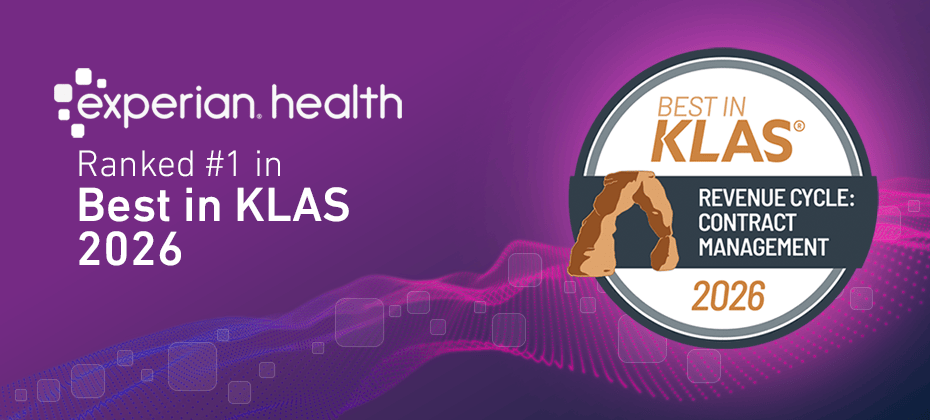
In the sixth article in our series on how the patient journey has evolved since the onset of COVID-19, we look at three ways to prevent claim denials and reduce the time to payment. Faster claims processing is at the heart of a better patient financial experience and reduces revenue leakage for providers. For more insights and strategic recommendations to improve the patient journey in 2021 and beyond, download the full white paper.
Nearly seven in 10 healthcare leaders say claim denials have increased in 2021, with an average denial rate of 17%. Inefficient claims processing and claims management systems were already struggling, but the pressures of the pandemic are causing even more rejections.
Vaccination programs, rescheduled electives, and residency relocations contributed to fluctuating patient volumes, putting extra strain on reimbursement workflows. Patients switching health plans, and missing codes for COVID-19 vaccinations and treatment caused further delays and errors. Payer rules for reimbursement of treatment for “Long Covid” remain unclear: the absence of research and standards means claims are rejected because there’s no agreed “medical necessity.”
Slow processes, incorrect patient identities, and poor data management mean the upward trend in claim denials seen over the last five years shows that it is likely to continue. Denials create a fragmented experience for patients because they don’t know how much they’ll need to pay for care, and leaves providers battling to recoup revenue. An effective claims management system is critical for maintaining provider revenue, securing patient reimbursements, and promoting positive patient-provider relationships.
Here, we recommend a three-part strategy that uses data and automation to get claims right the first time.
-
Prevention is better than cure
One of the primary frustrations for claims management teams is that the majority of denied claims are preventable. Many of the errors that trigger denials could be avoided if databases and records systems could talk to each other. Instead of a reactive response, providers should invest in tools that can proactively prevent mistakes and errors, to ensure they collect every dollar owed.
Digital tools can analyze data to help providers weed out the vulnerabilities in their processes and keep up with payer changes. Incorporating such tools is a sensible first step toward reducing and recovering expenses. One option is ClaimSource, which helps ensure that all hospital and physician claims are clean before being submitted to a government or commercial payer. It unlocks access to extensive federal, state, and commercial payer edits, allows custom provider edits, and incorporates automation tools and customer support. Providers can become confident that their claims will be correct the first time. Improving the likelihood of approval is critical to provider profitability and makes for a smoother patient experience.
-
Prioritize eligibility checks for cleaner claims the first time
Experian Health’s revenue cycle management experts say that the number one reason for denials is inaccurate eligibility. A 2020 poll by the Medical Group Management Association (MGMA) backs this up: 42% of providers said inaccurate or incomplete prior authorizations were a top cause of denials. Most providers use a medical claims clearinghouse or have systems to check eligibility beforehand. However, if patient identities aren’t verified properly at every touchpoint in the healthcare journey, mistakes can creep in and cause confusion about eligibility. Similarly, if the patient needs additional treatment that isn’t covered in the initial authorization, the resulting mismatch could lead to a denial.
Tools such as Prior Authorizations and Insurance Eligibility Verification can help providers validate patient coverage in under 30 seconds. These solutions integrate with ClaimSource to fill in the gaps of patient information and streamline the claims process. Patients will get better insights into what they owe, and providers can increase efficiency.
-
Automate workflows to eliminate time-consuming errors with claims processing
Providers are well aware that manual processing slows reimbursement and increases the risk of errors. Tools such as Prior Authorizations and Insurance Eligibility Verification can help by using data and automation to improve accuracy and efficiency. The Council for Affordable Quality Healthcare suggests that automation can shave 20% off claims processing times, which could translate to thousands of hours saved each month. With those extra hours, claims teams will be freed up to complete their lengthy to-do lists and focus their efforts on other priorities. In addition, automated workflows can help assign work to the right specialist, keep track of payer changes, and incorporate repeated identity verification checks to drive down denials.
With a Denial Workflow Manager, providers can automate and optimize their entire denial management process to get real-time insights on denied claims. This system can eliminate manual reviews and quickly identify accounts for resubmission or appeal. It can be integrated with tools such as ClaimSource and Enhanced Claim Status, so providers can monitor claims, denials and remits on the same screen and accelerate the workflow.
As the pandemic continues to pressure profits and patients come to expect more from their healthcare journey, it’s no longer reasonable to accept denials as a cost of doing business. To find out how Experian Health can help your organization reduce denials, recover pandemic losses, and improve the patient experience, contact our team today.
Missed the other blogs in the series? Check them out:
- 4 data driven healthcare marketing strategies to re-engage patients after COVID-19
- How 24/7 self-scheduling can improve the post-pandemic patient experience
- COVID-19 highlights an acute need for digital patient intake solutions
- Automated prior authorization: getting patients the approved care they need
- Getting a holistic picture of patients with social determinants of health


